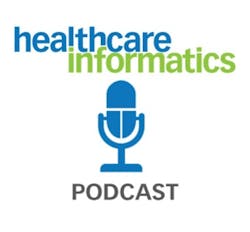Last Thursday’s Physician Fee Schedule (PFS) and Quality Payment Program (QPP proposed rule, released by the Centers for Medicare & Medicaid Services (CMS), was an incredibly important one as it relates to the future of healthcare policy and payment.
The proposals, according to CMS, will “fundamentally improve the nation’s healthcare system and help restore the doctor-patient relationship by empowering clinicians to use their electronic health records (EHRs) to document clinically meaningful information.”
Indeed, while Healthcare Informatics’ initial story on the government’s rule covers most of the basics, in this latest podcast episode, two health IT policy wonks analyze the most important parts of the rule that they have seen thus far, as well as the high-level impact of what CMS is proposing.On this podcast, Jeff Smith, vice president of public policy at AMIA (the Bethesda, Md.-based American Medical Informatics Association) and Tom Lee, Ph.D., CEO and founder of Chicago based SA Ignite, a company that helps healthcare organizations with value-based reporting, weigh in on the different components of the rule, with an emphasized focus on what’s being proposed for year three of the QPP, Evaluation and Management (E&M) coding, and telemedicine reimbursement changes.
The podcast, in its entirety, runs about 25 minutes, with Smith on for the first 15 minutes and Lee for the final 10. Keep in mind, you can listen to all Healthcare Informatics podcasts right here.

